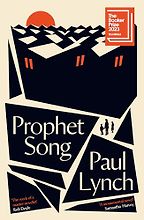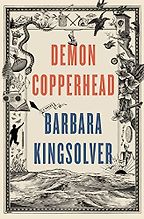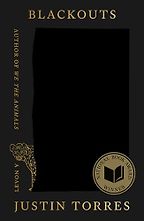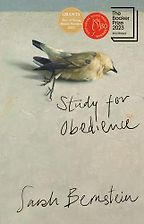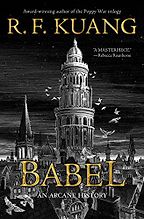daEvery month, dozens of new novels are born into the world. So many, it’s difficult for even a literary editor to keep a handle on the buzzy new debuts, the word-of-mouth bestsellers, the book club darlings, and the slowburn hits. One tried and tested method by which the publishing industry highlights the best books of the year—elevating them in the eyes of booksellers and the reading public—is via literary awards. Though no system is perfect (and, of course, the judging of literary quality is inherently subjective) we can assume that those who have given up their time to judge fiction prizes are unusually abreast of the recent publications, and have often ploughed through many dozens of new novels in search of their winner. Literary prizes are awarded throughout the year, and you may have missed some of the announcements; so here’s a quick round-up of the award-winning novels of 2023, plus a few personal highlights from among the finalists.
British and Irish Literary Awards
The Booker Prize is the biggest fiction award in the UK and Ireland. Paul Lynch won the £50,000 prize in 2023 for Prophet Song, a darkly prophetic novel set in a near-future Ireland that the New York Times described as “an unsettling dystopian parable.” In it, a biologist and mother of four must cope alone after the secret police take her husband into custody and the country descends into civil war. It’s earned comparisons with The Handmaid’s Tale and 1984, but Lynch has downplayed the ideological elements of the book: “My themes tend to be more metaphysical than political,” he commented. “A lot of political fiction begins with its own answer—it knows the problem and it knows the solution—and so therefore, it’s about grievance. And I think the work of serious fiction must instead be grief: grief for the things we cannot control, grief for what cannot be understood, grief for what lies beyond us.” Lynch, the author of four previous novels, has previously won several major literary awards, but was yet to have a major commercial breakthrough; the Booker win is likely to ensure his writing now finds a broad audience, both in Ireland and abroad.
The 2023 International Booker Prize judges compiled a “bold and subversive” shortlist of novels newly translated into English. I was particularly intrigued by The Gospel According to the New World by Maryse Condé—translated by Richard Philcox—billed as “a retelling of the New Testament set in modern-day Martinique.” But the ultimate winner was Time Shelter by Georgi Gospodinov (translated from the original Bulgarian by Angela Rodel) in which a dementia clinic offering period-piece accommodation is embraced by unsettling political elements harking towards a nostalgic national past. The Times said it was “a genre-busting novel of ideas.”
The Women’s Prize for Fiction is, in my opinion, brilliant at highlighting those books that sit nicely in that intersection in the literary fiction/popular fiction Venn diagram—that is, the sort of book I’m looking for when I’m looking for an enjoyable and well-written book to lose myself in during a long journey, or while on holiday. This year’s winner was Barbara Kingsolver’s Demon Copperhead, a modern retelling of David Copperfield set in an opioid-ravaged Appalachia, which has been a huge hit this year. Kingsolver previously won the same prize in 2010 with The Lacuna. Other shortlistees included Maggie O’Farrell’s historical novel The Marriage Portrait and Louise Kennedy’s tale of infidelity during the Northern Irish ‘Troubles’, Trespasses.
The shortlists for the inaugural Nero Book Awards were announced in November 2023. These prizes might loosely be considered a replacement for the Costa Awards (formerly known as the Whitbread Awards), which were scrapped rather unexpectedly last year after five decades. The top book in each category will take home £5,000, and the overall winner a further £30,000. They won’t be announced until January, but notable finalists include Paul Murray’s The Bee Sting, a comedic family drama that was also shortlisted for the Booker Prize, and Eleanor Catton’s environmental thriller Birnam Wood.
And finally: the 2023 winner of the International Dublin Literary Award, a €100,000 annual prize, was German author Katja Oskamp and her translator Jo Heinrich for Marzahn, Mon Amour, a novel described by the Lord Mayor of Dublin as a “warm, witty, and moving portrait of older residents in Berlin.”
North American Literary Awards
Kingsolver’s beloved Demon Copperhead also triumphed in May when it shared the 2023 Pulitzer Prize for fiction with Hernan Diaz’s bestselling novel Trust, a cunning book built of four unreliable narratives set in early 20th-century Wall Street. He has explained:
The novel is about who has a voice: who, throughout history, has been given a megaphone. Who has been gagged? Rather than thematise that in an expository way, I thought it would be more vivid – and fun – for readers to be presented with this polyphonic arrangement of four voices in succession and gently ask them to question why we trust one over the other.
An adaptation for HBO, produced by Kate Winslet, is forthcoming.
At the 2023 National Book Awards, Justin Torres (We the Animals) won the fiction prize for Blackouts, an experimental novel in which an older gay man slowly dying in the desert converses with a younger, unnamed narrator who has come to care for him. It is “festooned in dizzying layers of tales-within-tales, photographs, film scripts, scholarly-sounding endnotes and fictionalized accounts of real-life figures,” as NPR has explained, and concerns the distortions, confessions, and erasures of queer history. (I suspect that, if you enjoy Blackouts, you will also enjoy Catherine Lacey’s recent Biography of X—another slippery creature that takes the form of a fictional biography, with semi-fictional source notes.)
Earlier in the year, Ling Ma (author of the brilliant post-pandemic novel Severance) triumphed at the 2023 National Book Critics Circle Awards with Bliss Montage, a highly acclaimed collection of eight short stories. “The collection guts and renovates the genre by refusing to draw a distinction between realism and fable,” noted the judges. “Freed from the constraints of allegory or standard-issue plot mechanics, readers are instead left to reflect on more essential things, most prominently, humanity’s ability to absorb and inflict harm.”
And in Canada the $100,000 Scotiabank Giller Prize was won by Sarah Bernstein’s Study for Obedience, an eerie and unsettling tale of xenophobia set in an unnamed northern country, which was also shortlisted for the Booker Prize earlier in the year. The Daily Telegraph declared it “a beautiful, riddling tale of a woman on the fringe of a rural community” that, though “philosophically opaque,” is both “elegant and electric.”
Australian and New Zealand Literary Awards
Human rights lawyer Shankari Chandran won the $60,000 Miles Franklin Award for her third novel, Chai Time at Cinnamon Gardens, a book about a fictional nursing home in Sydney populated with elderly Sri Lankan residents. “Don’t be fooled by the cute premise or the twee title,” warns ABC News. “This story has Australian identity and colonial mythology in its crosshairs, and the author is a crack shot.”
Across the Tasman Sea, the 2023 winner of the Jann Medlicott Acorn Prize for Fiction was The Axeman’s Carnival by Catherine Chidgey, a novel set in the rural high country and narrated by an opinionated magpie. It is, said the judges, “poetic, profound and a powerfully compelling read from start to finish.” Readers in the US and the UK will be able to get their hands on a copy from April, published by Europa Editions.
Science Fiction and Fantasy Awards
The 2023 Arthur C Clarke Award was won by Ned Beauman’s Venomous Lumpsucker. When I spoke to the prize director Tom Hunter earlier this year, he described it as a “dark, satirical, deeply angry book about our species,” which is “also eminently readable, oddly hopeful at times, and very, very funny.” I also particularly enjoyed another Clarke-shortlisted title, The Anomaly by Hervé Le Tellier, which is a rather excellent amalgam of airport thriller and Oulipian experiment. It won France’s Prix de Goncourt back in 2020, but was only recently translated into English by Adriana Hunter. In it, a plane, including its passengers, is duplicated when it passes through a storm cloud. In a series of narratives, we explore how the various characters cope—or don’t—with their new, strange identity as a matching pair.
At the Nebula Awards in May, R.F. Kuang won the prize for the best novel for Babel, a dark academia fantasy set in an alternate Oxford University where the study of translation and magic are closely intertwined. It’s an ambitious act of world-building and functions as a powerful postcolonial parable. Perfect for fans of Jonathan Strange & Mr Norrell, or for those who have aged out of Harry Potter and are looking for something similar but a bit meatier.
Historical Fiction
Lucy Caldwell won the 2023 Walter Scott Prize for These Days, a novel set during the Belfast Blitz, a series of four devastating major air raids on the Northern Irish city in 1941. The judges noted that “the juxtaposition of the horrific and mundane and the authenticity of detail makes this novel an exceptional study of the terrors and consequences of war.” Other shortlisted titles included Robert Harris’s Act of Oblivion, a story set in 17th-century New England, and Elizabeth Lowry’s The Chosen, a fictionalised account of Thomas Hardy’s marriage.
Crime, Mystery, and Thrillers
George Dawes Green received the Crime Writers Association’s Gold Dagger award for his long-awaited fourth novel The Kingdoms of Savannah, a Southern Gothic mystery. “His prose is languid, even luxurious, but at critical moments of suspense, he pares it back to ramp up the terror,” said the New York Times. John Brownlow won the Ian Fleming Steel Dagger, a prize for the best thriller, for Agent Seventeen, a riveting suspense novel that will shortly be followed up in April with the publication of Agent Eighteen.
The International Thriller Writers announced their annual awards in May. The title of ‘best hardback novel’ went to Sundial, a work of psychological horror from the author of The Last House on Needless Street, Catriona Ward. Sundial was also a finalist at the Bram Stoker and Locus Awards.
Of course, there are only so many spots on shortlists and that means that many brilliant books are unfairly passed over. If you have a firm favourite from the 2023 class of fiction, why not drop us a line on social media to let us know?
December 15, 2023. Updated: June 11, 2025
Five Books aims to keep its book recommendations and interviews up to date. If you are the interviewee and would like to update your choice of books (or even just what you say about them) please email us at [email protected]
Five Books interviews are expensive to produce. If you've enjoyed this interview, please support us by donating a small amount.
